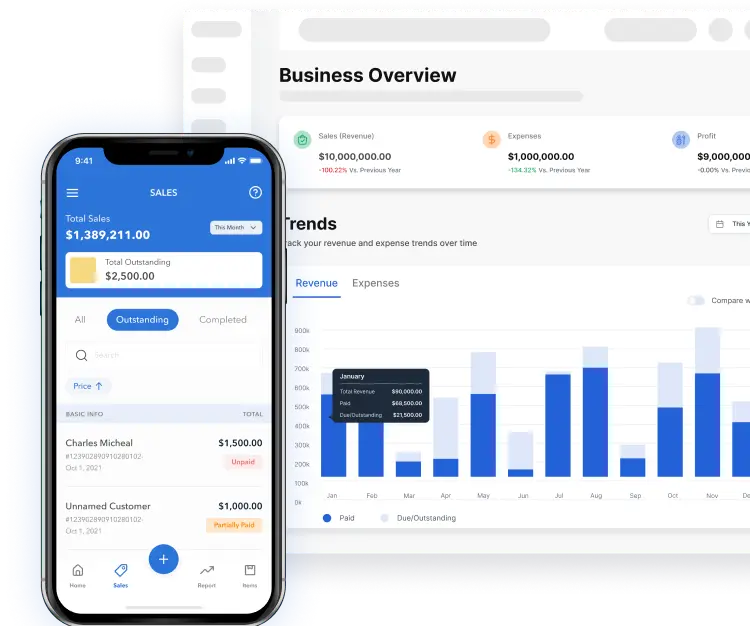Since COVID-19 turned the world upside down two years ago, it’s never been more difficult for businesses to plan their budgets and adjust accordingly – whether spending or saving, the rule now is only to expect the unexpected while planning your business budget.
However, there are still ways to help you regain control over your company’s finances and plan your business budget; you just have to switch some gears.
So let’s get into how you as a business owner can plan your business budget to get the most out of it this year in 2022.
- Plan out your goals and objectives
- Take total stock of your expenses
- Do a break-even analysis
- Pay attention to cash flow
- Figure out a business strategy
- Consider growth and unexpected expenses
Plan out your goals and objectives
Sounds basic, doesn’t it? Yes! And yet planning out what you hope to achieve for your business will always be the first step. Planning your business budget will let you analyze thoroughly and help you set realistic goals after considering risks.
In addition, you learn in-depth about the different factors affecting your company and pre-plan countermeasures for whatever problems you predict that you’ll most likely run into. This will give you the confidence to jump right into running the business without the stress of failure hanging over your head.
Once planned out and finalized, it’s best to stick to it and leave some room to alter when necessary. It will also be beneficial to outline who is responsible for delivering which results, so that delegation of objectives becomes clear.
Creating a road map and writing down all the details will lay things out clearly for assessment. You can even use numbers from the previous year to give you cost and sale clues.
Take total stock of your expenses
Bring out all the financial information you have of your current and expected expenses, and make sure you have an in-depth understanding of any and every expenditure you might face before deciding to cut anything.
You can then move on to categorizing them accordingly with different labels such as variable and fixed costs.
Fixed/overhead costs remain steady over time regardless of the product or service. So you will still face them regardless you are halting your business operations or not.
Variable costs relate to the services or the goods that the business provides.
By organizing them in such a way, you minimize the risk of making a wrong decision; the more accurate statistical information you have, the better. At the end of the day writing a business plan is essential.
Do a break-even analysis
Performing a break-even analysis (BEP) can give you some perspective regarding potential profit and loss. It shows the sales balance point where your total revenue equals your total cost.
You can analyze the margins through different scenarios to get somewhat of a prediction of what the results can be.
Although there are other factors to take into account, it is a good starting point from where you can take your analysis further by gaining initial insights.
It’s best not to cut costs impulsively until you get a sure idea of the type of costs involved and where it is necessary to cut them.
A solid break-even analysis is especially beneficial for startups and small business owners. It provides financial projections and provides an idea of how much seed money or startup capital you’ll need.
Pay attention to cash flow
Cash flow mismanagement can be what plunges any business underwater.
One of the top reasons businesses fail is a poor understanding of how cash flow works; research done by U.S Bank and cited by SCORE shows for this reason alone, 82% failed. And another 78% failed because of a poorly developed business plan. These two go hand in hand!
Some of the ways you can counter this problem are by consulting professionals to create cash flow projections.
If you’re an accountant or not, you can always use reliable accounting software like Vencru.
Figure out a business strategy
One part of planning your business budget is determining a strategy to go about plans of action regarding its operations.
What kind of products or services are you considering launching? With what companies do you plan to have commercial partnerships? Are some operations going to be outsourced or not? These are just some of the questions you are most likely to consider while figuring out what to do next.
The more information you have about the strategy you want to implement, the easier it will be to budget your way around it. Every action will have different costs that go along with it.
Don’t take up the entire task upon yourself in utilizing accounting software to have better management of your accounts. A reliable software such as Vencru allows more than one way of organizing all your financial business issues and has features such as inventory management, invoicing, expense tracking, client management, and even projecting accounting reports.
Consider growth and unexpected expenses
Lastly, don’t forget to consider growth and unexpected expenses in your business strategy.
It is beneficial to think about the long-term as this will allow you to make a necessary decision in the present that can set a base for what will come later.
So to keep things safe, just assume that your business will incur at least one major financial disaster for sure, and be thoroughly prepared for it.
In addition, thinking about growth will allow you to budget in a way by spending on things such as increased advertising, new employees, and any additional taxes that may come up.
Make sure you stay tuned to our blog to get more amazing resources to help you navigate the market as a small business. Good luck!






